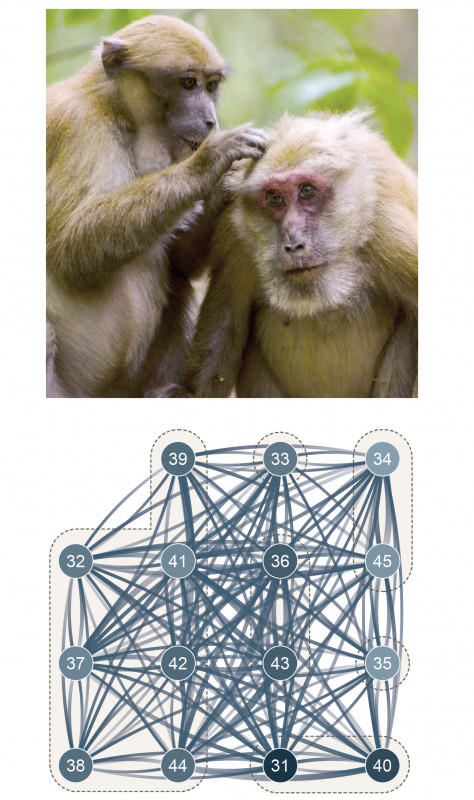News Details

Animal social networks are often studied through causal questions concerning the drivers of the network structure, and inference based on the observed social interaction. However, understanding animal social networks through behavioral observations poses a challenge to behavioral ecologists due to many factors including non-independent interactions, sampling bias etc. that lead to confounded causal effects.
In a recent paper published in PLOS Computational Biology, KLI Fellow Ben Kawam and colleagues present a new analytical framework based on causal inference that provides a more transparent link between empirical observations with theoretical predictions, and solves common statistical issues in the analysis of animal social networks, to facilitate a more reliable inference from messy behavioral data.
Ben and colleagues integrate techniques from causal inference and Bayesian statistics, and introduce a practical framework that behavioral ecologists can use to conduct causal inference in their own study systems. They first introduce three levels of abstraction to study an animal social network system, viz. i. theoretical construct: the social relationship which is under investigation, e.g. affiliation; ii. interaction: behavioral proxy for the theoretical construct of interest, e.g. allogrooming; and iii. data: empirical observations based on standardised protocol. Secondly, the authors make an argument that issues in animal social network analysis are a problem of causal inference. And finally, they propose a novel Bayesian causal modeling framework that links the underlying social network with its ecological and biological causes, and the behavioural data observed by researchers.

